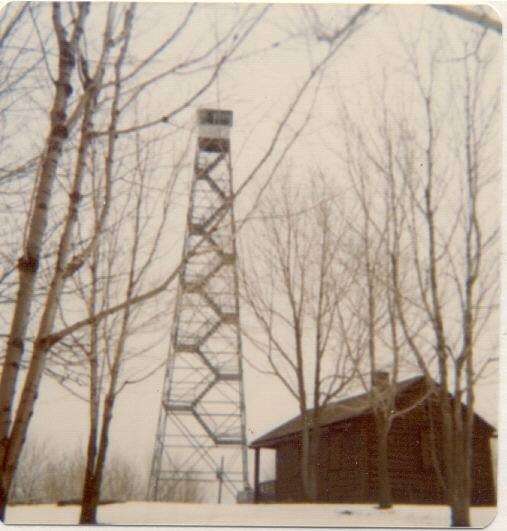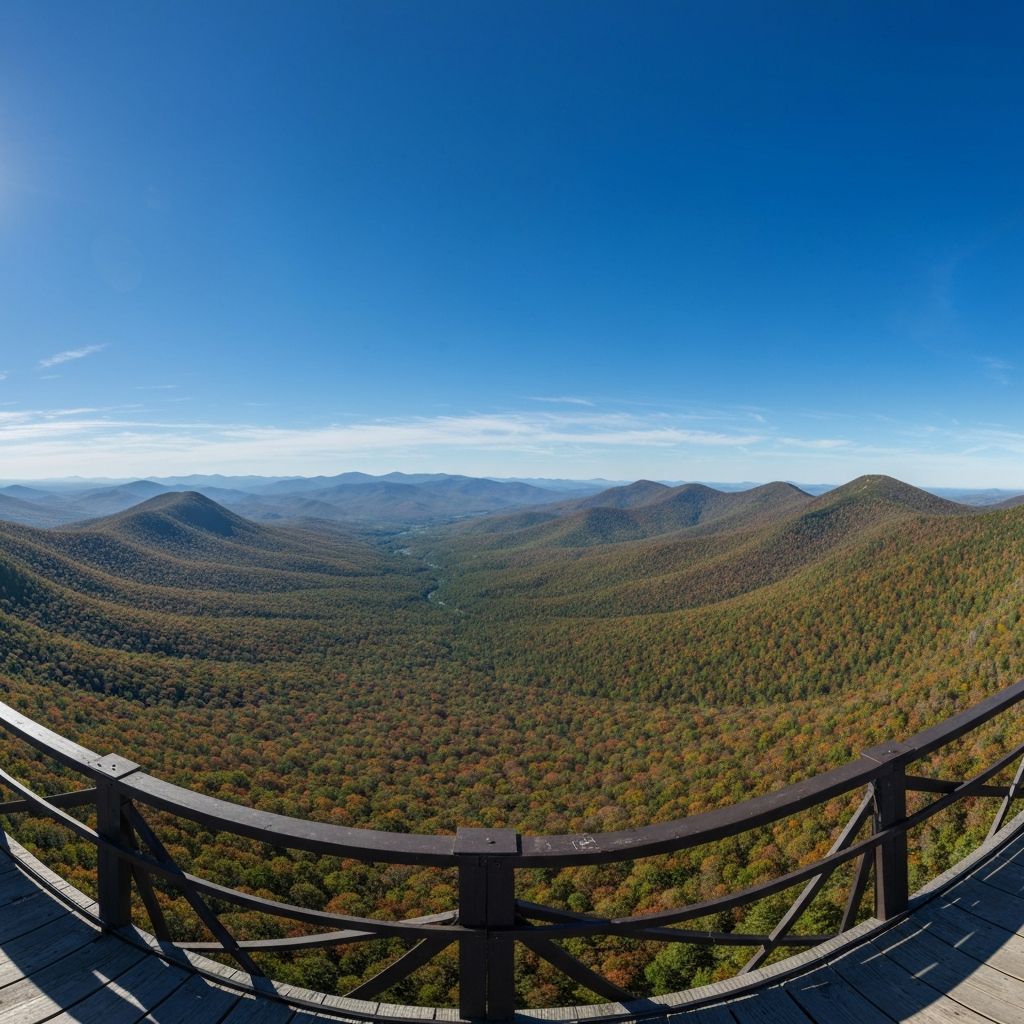The Bramley Mountain Fire Tower
A century of watching over the Catskills

View from the top
Experience the breathtaking 360° panorama from the observation deck, 60 feet above Bramley Mountain
Click and drag to explore • Scroll to zoom
A beacon in the forest
The Bramley Mountain Fire Tower stands as a testament to an era when human vigilance was the only defense against the devastating wildfires that threatened New York's forests. Erected in 1925 by the Conservation Department, this 60-foot steel structure was one of over 100 fire towers that once dotted the peaks of New York State.
For nearly six decades, fire observers climbed the 97 steps each day during fire season, scanning the horizon with binoculars and an Osborne Fire Finder — a specialized tool that allowed them to triangulate the exact location of any smoke plume they spotted. Their reports, radioed to headquarters, could mobilize firefighting crews within minutes.
Timeline
Construction Complete
The tower is built using steel components hauled up the mountain by horse and wagon. The structure is designed by the New York Conservation Department's engineering division, built to withstand heavy snow loads and high winds.
Active Fire Watch
Fire observers staff the tower during peak fire season (April-November). The position requires climbing the tower multiple times daily, maintaining weather logs, and maintaining constant vigilance. Many observers returned year after year, some serving for over 30 seasons.
Decommissioned
With the advent of aerial surveillance and modern detection technology, the tower is officially closed. The cab is removed for safety, and the structure is left to weather the elements.
Listed on National Register
The tower is added to the National Register of Historic Places, recognizing its significance in New York's conservation history and its architectural importance as a representative example of early 20th-century fire tower design.
Restoration Project
A coalition of local volunteers, historians, and preservationists launch a comprehensive restoration. The project includes structural reinforcement, repainting using historically accurate colors, reconstruction of the observation cab, installation of new safety railings, and creation of interpretive displays.
Public Opening
After seven years of work, the tower officially reopens to the public. Visitors can now experience what fire observers saw for nearly half a century — unobstructed views across five counties and a tangible connection to New York's conservation heritage.
Life as a fire observer
Being a fire tower observer was solitary, demanding work. Observers arrived at dawn and remained until dusk, making regular scans of the horizon every 15 minutes. They recorded weather conditions hourly — temperature, humidity, wind speed and direction, cloud cover — data that helped predict fire danger.
The job required sharp eyes, infinite patience, and the ability to distinguish between legitimate smoke and harmless atmospheric conditions. False alarms wasted resources; missed fires could be catastrophic. Observers developed an intimate knowledge of their territory, learning to recognize individual farms, roads, and landmarks from miles away.
Many observers were local residents who returned season after season. They kept journals, noting wildlife sightings, unusual weather, and the changing seasons. Some of these journals survive today, offering a unique historical record of the mountain and the surrounding region.
Tower Specifications
Visibility Range
The restoration

Before: Original tower in 1974

After: Fully restored in 2025
By 2018, the tower was in severe disrepair. Decades of weather had taken their toll — rust had weakened structural members, the original cab was long gone, and portions of the stairs were unsafe. A local preservation group, the Friends of Bramley Mountain, took on the challenge of bringing the tower back to life.
The restoration required meticulous research. Historic photographs helped recreate the exact appearance of the original observation cab. Paint analysis determined the authentic color scheme. Structural engineers assessed every beam and joint, replacing what was beyond repair while preserving as much original material as possible.
Funding came from state grants, private donations, and countless volunteer hours. Local welders donated their time. Materials were hauled up the mountain. In all, over 5,000 hours of labor and significant community investment went into the project — a true community effort to preserve a piece of history.
Visit today
The fire tower is accessible via a moderate 1.5-mile trail from the main parking area. The trail gains 400 feet of elevation through mixed hardwood forest. Allow 45 minutes to reach the tower.
The climb to the observation deck is optional but highly recommended for those comfortable with heights. The stairs are now equipped with modern safety railings, and the cab features interpretive displays about the tower's history and the surrounding landscape.
Please be respectful of this historic structure. The tower is monitored, and vandalism will be prosecuted. Stay on marked trails, carry out all trash, and help preserve this landmark for future generations.
